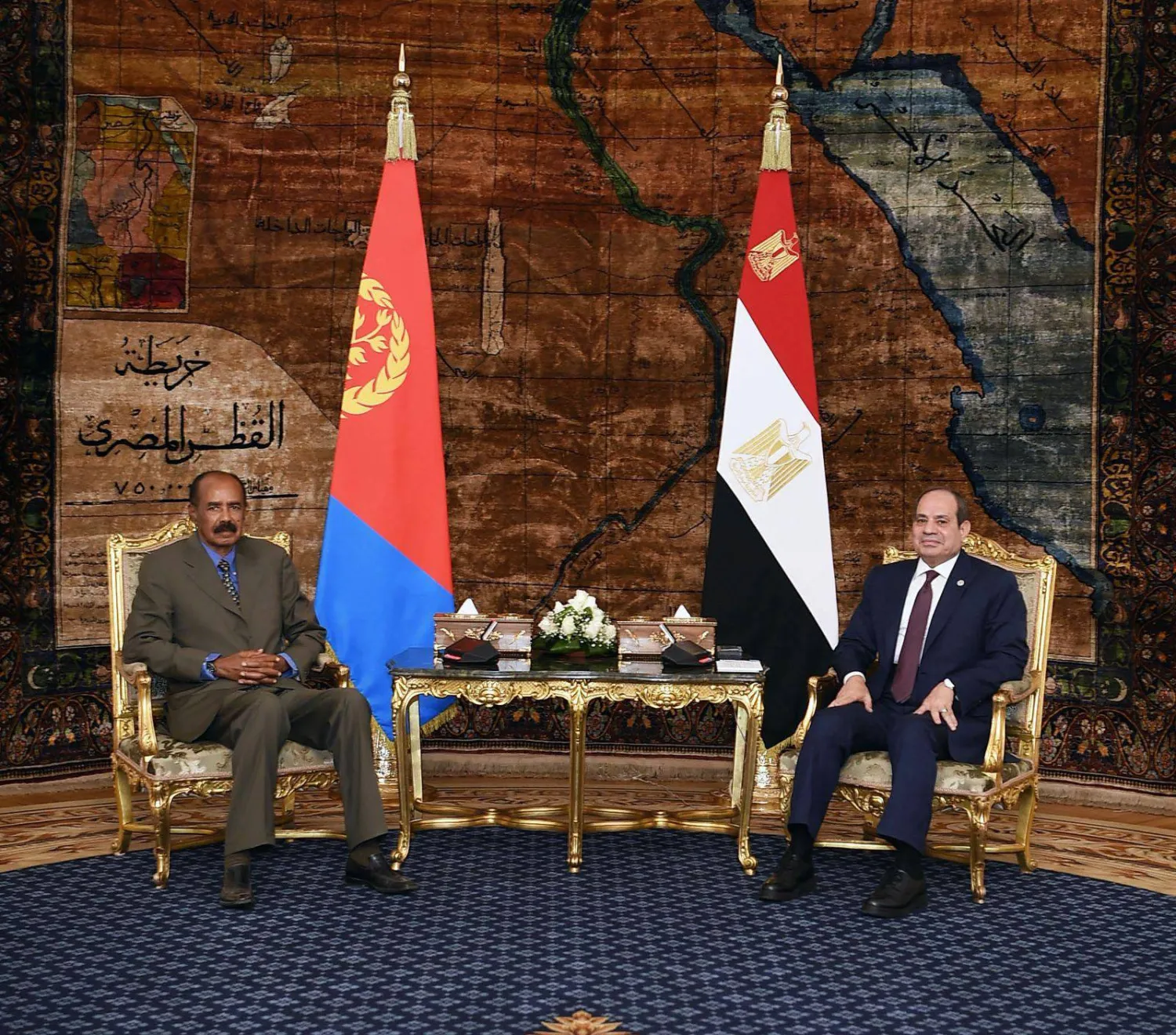Eritrean President: Securing navigation in the Red Sea is the responsibility of the countries bordering it.
He said that the geopolitical importance of the region does not justify any external interventions.

In a televised interview on the sidelines of his visit to Egypt with Cairo News Channel, which aired Tuesday evening, Afwerki explained that “integration between the countries bordering the Red Sea is extremely important and requires the establishment of joint mechanisms to enhance cooperation,” stressing “Somalia’s ability to protect its shores, in addition to the ability of Eritrea, Yemen, Djibouti and Sudan to protect their coasts, and that the complexities of the region stem from resorting to external alternatives instead of strengthening local efforts.”
He pointed out that “the geopolitical importance of the Red Sea does not justify any external interventions. This Eritrean vision is completely in line with Egypt’s vision,” adding: “The converging views between countries are not the choices of governments, presidents, or political parties, but rather reflect the interests of the peoples of the region, and every government must have a clear vision of its capabilities to protect this fundamental principle and contribute to strengthening regional cooperation.”
The Eritrean president held talks with his Egyptian counterpart Abdel Fattah al-Sisi last Thursday, on the sidelines of his visit to Egypt to participate in the opening of the Grand Egyptian Museum. According to a statement issued by the Egyptian presidency, “the meeting included an emphasis on the importance of strengthening cooperation to ensure the security of the Red Sea and to avoid affecting navigation in this vital waterway.”
The Egyptian president stressed the need to intensify coordination between Egypt and Eritrea, as well as with the Arab and African coastal states, in order to contribute to consolidating security and stability in this region.
In his interview with the Egyptian channel, Afwerki stressed that “the countries of the Horn of Africa are capable of solving their problems locally if they are given the space and conscious approaches are put in place to address the issues without being drawn into ethnic or tribal divisions or failed policies.” He added that “the peoples of the region are facing difficulty in building states with sovereign institutions in light of these divisions.”
He stated that “bilateral and collective cooperation between the countries of the Horn of Africa region is imperative to achieve growth, prosperity and stability,” stressing that the relations between Egypt and Eritrea are special strategic relations aimed at integration and comprehensive cooperation in order to change the reality of the crises and disturbances that the region is witnessing.
These statements come days after a speech by Abiy Ahmed in the Ethiopian parliament, in which he called for cooperation between the Nile Basin countries, Ethiopia, Sudan and Egypt, regarding the “Grand Ethiopian Renaissance Dam,” as well as for cooperation with Eritrea to gain access to a sea outlet for his landlocked country.





